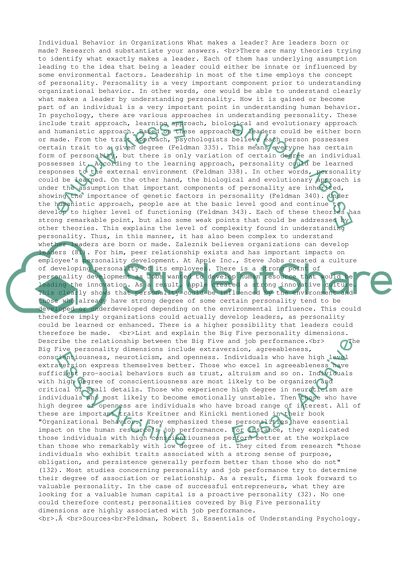Individual Behavior in Organizations Essay Example | Topics and Well Written Essays - 500 words. Retrieved from https://studentshare.org/business/1603205-individual-behavior-in-organizations
Individual Behavior in Organizations Essay Example | Topics and Well Written Essays - 500 Words. https://studentshare.org/business/1603205-individual-behavior-in-organizations.


